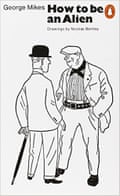
How to Be an Alien by George Mikes (1946)
I may have mentioned this before, but I’m a dad now. As a result, almost all the books I’ve received this year remain hopelessly unread. Some of them – like What She Left by TR Richmond and The Universe in our Hand by Christophe Galfard – are supposed to be spectacular, and the fact that I haven’t got around to them has been a constant source of irritation.
So, of the few books I have actually read this year, the best has been How to Be an Alien by George Mikes. An outsider’s guide to the English written in 1946, it’s both bracingly fresh and slim enough to plough through in a few hours. As funny and insightful as it is, though, the book is a masterpiece of editing. There isn’t a wasted word in the whole thing. It’s a talent I only wish I had.
Stuart Heritage, writer
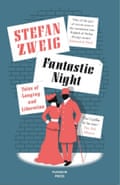
Fantastic Night and Letter From an Unknown Woman (1922) by Stefan Zweig
If it weren’t such a great movie, I would be more than a little ashamed to admit that I picked up my best book of the year thanks to Wes Anderson’s The Grand Budapest Hotel. Anderson’s literary tricks intrigued me enough to track down his own inspiration: the Austrian writer Stefan Zweig.
Zweig exquisitely skewers an almost lost culture of the Vienna between the wars. And he does so with the precision of a master short storyteller: concisely, intimately and dramatically. Immersed in his highly mannered world, you simply can’t resist the sharply observed characters and crises of Fantastic Night and Letter From an Unknown Woman. They may not have the slapstick of the Grand Hotel, but Zweig – just like Ralph Fiennes’ concierge – sustains the illusion with a marvelous grace.
Richard Wolffe, columnist
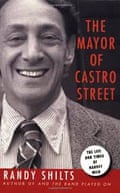
The Mayor of Castro Street: the Life and Times of Harvey Milk by Randy Shilts (1982)
Without a doubt, the best biography I have ever read. Written just years after Milk was assassinated, Shilts’ book is an intricate character-study of the human being underneath the gay icon, told to Shilts by those who loved and knew the politician, still fresh from the shock of his murder in office. Anecdotes and conversations are weaved together to build this masterful work of journalism, that also dissects the intricacies of local government in America and how San Francisco came to be the iconic haven for the queer community it is today.
Sian Cain, Books site editor
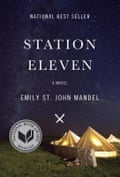
Station Eleven by Emily St John Mandell (2014)
I had two babies and wrote a book this year, so almost everything I started to read went unfinished. One book I did stay up beyond 9pm to keep reading was Station 11, by Emily St. John Mandell. It is, in some ways, a compendium of every dystopian cliche you have already read, but done with a swiftness and urgency that makes it hard to stop reading. It is very clever about impermanence, and the delusions of security we maintain in order to live. The opening scene, set in Chicago on the night before civilisation implodes, is a scene I find myself replaying every time I go to the supermarket; how does one shop for the end of the world?
Emma Brockes, feature writer and blogger
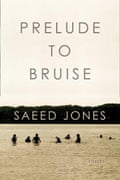
Prelude to Bruise by Saeed Jones (2014)
Saeed Jones’s Prelude to Bruise was the book that sat in my bag the longest this year, because I didn’t want to let it go. As a gay, black man who grew up in the American south it’s rare for me to find something that I not only connect with, but see my life pulse through as well. Jones’ book is that for me.
Boy, be
a bootblack.
Your back, blue-black.
Your body, burning.
I like my black boys broke, or broken
I like to break my black boys in.
-- the title poem
It’s been described as an “astonishing” collection of poems – winning numerous awards since its 2014 release – but every time I crack open my now worn copy of this book, I am reminded most of one thing: myself, and that is astonishing.
Zach Stafford, contributing writer, Guardian US
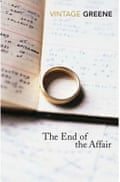
The End of the Affair by Graham Greene (1951)
While I spent most of the year deep in books from 2015, some of my favorites were from years – or decades – past. Graham Greene’s The End of the Affair is perhaps one of my favorite books on faith ever, while still maintaining an overall sexy sordidness. It’s ultimately about the often down right superstitious negotiations we make with ourselves (and with God) on behalf of the ones we love.
While we’ve heard Hanya Yanagihara’s name deservedly cited over and over again on best of lists, her first novel The People in the Trees may be more brilliant and complex in form than A Little Life. I hesitate when recommending the latter, but the scientific cloakings and footnotes of the former allow for some much needed distance between the material and reader, something that A Little Life doesn’t do.
Finally, Lidia Yuknavitch’s memoir The Chronology of Water was immersive, heartbreaking, and healing, defying ever literary tradition. It’s an excellent companion to her 2015 novel The Small Backs of Children.
Sarah Galo, freelance writer
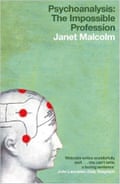
Psychoanalysis: The Impossible Profession by Janet Malcolm (1981)
I find it’s generally true that when you read any book by Janet Malcolm, it’s likely to be among the best books you read that year, and that was the case with Psychoanalysis: The Impossible Profession, her fascinating and dryly hilarious account of the world of New York City shrinks in the 1980s, focused on a small group of hardcore followers of Freud who are doggedly determined to defend the master’s orthodoxy against modernizers (at least when not too busy fighting among themselves). Malcolm has the all-too-rare knack of treating her journalistic subjects with intense sympathy and a raised eyebrow at the same time, and the only real downside of reading too many of her crystalline sentences is that you find yourself trying to emulate her style, poorly, for weeks afterwards.
Oliver Burkeman, writer
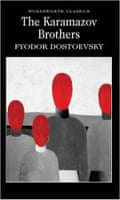
The Brothers Karamazov by Fyodor Dostoyevsky (1880), translation by Constance Garnett
As a 21st century denizen more interested in inner space than sci-fi/fantasy, a book with 900 pages of mental masturbation on life’s biggest questions goes to the top of my list for 2015. The Brothers Karamazov may have been written 135 years ago, but in Fyodor Dostoyevsky’s hands, the human experience is timeless. The four titular brothers share the world’s worst father. (Parents, am I right?) A murder happens and each of them must examine his part in it. Along the way, God, free will, suffering, and love are discussed with such compassion that anyone who reads the book finds themselves in its pages. A fact I wouldn’t have believed had I not experienced it first hand.
Meanwhile, in your despair, you, too, divert yourself with magazine articles, and discussions in society, though you don’t believe your own arguments, and with an aching heart mock at them inwardly.
Sigh.
Cindy Casares, freelance columnist
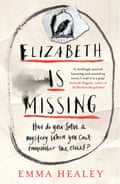
Elizabeth is Missing by Emma Healey (2014)
My wife joined a book club this year, which has improved my reading no end. Instead of picking from my shelf of dusty oldies, I can reach instead for her nearly new cast-offs such as Gone Girl and The Goldfinch. The best so far, though, has been Elizabeth is Missing. It interweaves two passages in the life of Maud: in the first she is an elderly woman in the grip of dementia who has lost contact with a dear friend; in the second, a young girl in wartime whose sister disappears suspiciously. In Maud’s confusion, the fractured memories of the earlier loss instil in her mind the belief that her modern-day friend, Elizabeth, has been the victim of a crime.
What makes Emma Healey’s book remarkable is that all this is told in the first person. Maud herself drives the action along and we see her confusion from inside her head, the struggle to make sense of her thoughts, the unknowing repetition of actions such as shopping for tinned peaches, the obsession with small details that nag at her brain. Healey handles this deftly: when Maud tells us she is narrating at that moment from “the sitting thing, the thing for sitting on”, we understand eloquently the awful loss of self that is occurring. And as both past and present mysteries unfold with increasing pace, we are held in the grip of a masterful page-turner.
Paul Simon, Culture production editor
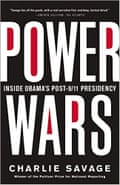
Power Wars: Inside Obama’s Post-9/11 Presidency by Charlie Savage (2015)
Seven years into the Obama presidency, with Guantanamo still open and multiple wars in the Middle East seemingly further away from ending than ever, New York Times national security reporter Charlie Savage has written both the most comprehensive and the most engrossing look at how Obama morphed from a candidate beloved by the civil liberties community into what many saw as a continuation of George W Bush (as well as a good argument that, in fact, he didn’t change much at all). Now at the twilight of the Obama administration, as politicians again compete over who can call for more drastic action against terrorists, as well as new laws that would lay waste to the Bill of Rights, this book could not be more timely.
Trevor Timm, columnist, Guardian US
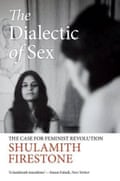
The Dialectic of Sex: The Case for Feminist Revolution by Shulamith Firestone (1970)
I sat down to read the late Shulamith Firestone’s The Dialectic of Sex hoping the feminist classic might subtly inform my worldview. In fact, the book is uncannily relevant to our current moment and especially, to the 2016 presidential election cycle. It’s written for socialists, instructing them in where Marxist philosophy misses the oppression of women and minorities - but it’s instructive for everyone, and in particular, for Bernie Sanders fans. As Rebecca Traister recently reminded us in New York magazine, misogyny and gender resentments have never been the sole province of the American right, and now a distinct strain of left-wing disdain for identity politics has surfaced in American politics. It’s not just Sanders’ fans: the candidate’s own blind spot for identity politics has already hurt him, as when he tried to ignore Black Lives Matter activists earlier this year, instead continuing to deliver his same old stump speech about class-based inequalities. He’s learned from that moment, but his fans and supporters, and anyone who cares about fostering a more inclusive portrait of what it means to have true justice and equality in our society would do well to pick up the 1970 text that cemented Firestone’s name.
Lucia Graves, political writer

Faces in the Crowd by Valeria Luiselli (2011)
I’ve spent most of this year immersed in 2015 books, which has been largely gratifying, but it has frustratingly prevented me from reading much else. This was a welcome diversion, and a very strange one at that. Reading the first novel by Mexican writer Valeria Luiselli was a surreal, exhilarating experience that took me on subway trips through the New York of the 1920s, with Gilberto Owen, Ezra Pound, Federico García Lorca and other delightful literary cameos; to 21st-century Mexico City; and inside the lives of several narrators whose lives and voices layer up and intertwine. It has doubtless literary merit, and it feels like a weirdly addictive race – also, it’s unlike anything I’ve ever read before. Which was exactly what I needed this year.
Marta Bausells, social and community editor, Arts and Culture
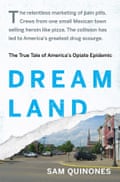
Dreamland: The True Tale of America’s Opiate Epidemic by Sam Quinones (2015)
Yeah, I wrote a blurb for the jacket of this book, and Sam’s a mentor of mine, but whatever: when 60 Minutes essentially takes the premise of this stunning book and spins it as its own http://samquinones.com/reporters-blog/2015/11/02/sad-for-60-minutes/, you know you this is a must-read. Quinones tells the story of America’s opiate and heroin epidemic as a call-and-response: chapters alternate between the small-time Mexican traffickers who created a empire and appropriated Mexico’s immigrant work ethic to poison Americans, and the pharmaceuticals, the biggest drug cartel of them all. Chilling, gripping, must-read--and you’ll end the book bewildered and wanting more.
Gustavo Arellano, columnist, Guardian US
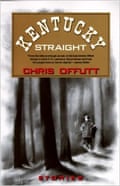
Kentucky Straight by Chris Offutt (1992)
Especially in the case that you are a city dweller, I implore you to search out and pick up a collection of short stories written by Chris Offutt, published in 1992, called Kentucky Straight. It’s the best book I read this past year. Its 164 pages are for reading slowly, for admiring every perfectly chosen word. For being brought to the still-yet-wild hills and hollows of sparsely populated Appalachia, where people live amongst weird and ancient spirits. “The sounds of night swarmed the woods,” it goes, at the end of one story, “The Leaving One.” A bobcats’ high-pitched scream pierced the quickening wind. Leaves whirled the air.” This experience, this being brought to the mystical woods, works best of all, if I remember right, while you’re actually just on your way to an office, cramped between too many other people on a stinky, overcrowded subway rumbling beneath big buildings and paved streets.
Dave Bry, writer
The Right Stuff by Tom Wolfe (1979)
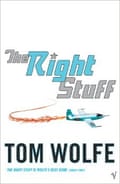
The Right Stuff is a book that, despite being a very personal piece of journalistic non-fiction about the space race and the lives of fighter pilots, made me reconsider my relationship with science-fiction; it contextualises the archetypal characters of military science-fiction with the lives of the historical figures on which they are based. The appeal of such sci-fi, for me, had always been its larger-than-life rogues and aces – I enjoyed the stories of preternaturally skilled, carefree experts who can thrash about expensive hardware, the camaraderie and macho-ness of the whole affair. Indeed, I began reading Wolfe’s book with a somewhat naive belief that it would be an exciting and humorous affair of clever boffins and plucky lads and derring-do.
Wolfe’s uncompromising prose can go from stomach-turningly gruesome in depicting aircraft malfunctions and horrible crashes to scatological and humorous, and on top of that still retain an emotional punch on a human level. I personally think the best books are those that not only inform me about something or entertain me, but which also make me reconsider something I think I know. Friday Night Lights made me re-evaluate my beliefs about the nature of sports fandom. The Right Stuff made me re-evaluate my understanding of masculinity, and appreciate films and programmes I have long enjoyed in different ways.
Raymond Webster, Guardian reader
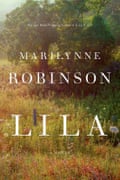
Lila by Marilynne Robinson (2014)
Best book I’ve read this year? NO CONTEST. Lila’s a novel immersed in Christian theology. I’ve always believed that if someone’s religion makes them a better, more decent human being, then their faith is of great value, but if it doesn’t, then it’s worthless. Does Marilynne Robinson’s Christianity make her a better person? I don’t know. What I do know is that she’s written a beautiful novel with a particular gift for paring her words down to their emotional essence. Lila ostensibly takes place in 1940s Iowa, but I so often felt that Robinson’s characters were inhabiting an 1880s world. There was almost nothing 20th-century about their lives. The only thing that actually bothered me, though, was the book’s sequential nature. I found Robinson’s use of intermittent flashbacks diminished the force of her narrative. Once Lila finds sanctuary, looking back at her harsh past no longer retains the same dread, the same power ... how could it? No matter. Marilynne Robinson is a magnificent stylist whose sentences often carry the force of blows to your heart.
conedison, Guardian reader
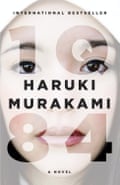
1Q84 by Haruki Murakami (2009)
There are very few similarities between my top two books for the year. I really enjoyed Murakami’s 1Q84, and was very pleased to have the time to devote to it earlier in the year. I liked the slow build of the relationship between Aomame and Tengo, the idea that a novel could have the power that Air Chrysalis did and the weirdness in the plot, among other things.
My other favourite was Arnold Bennett’s Clayhanger novels: I read the first and had to continue with the sequence, partly because they were presenting a historical period to me I knew nothing about but mainly because of the tumultuous relationship between Edwin and Hilda, and their efforts to make things work despite the difficulties.
NZBarry, Guardian reader
- Which book did you enjoy reading the most this year (regardless of when it was publuished)? Share it in the comments below!

Comments (…)
Sign in or create your Guardian account to join the discussion